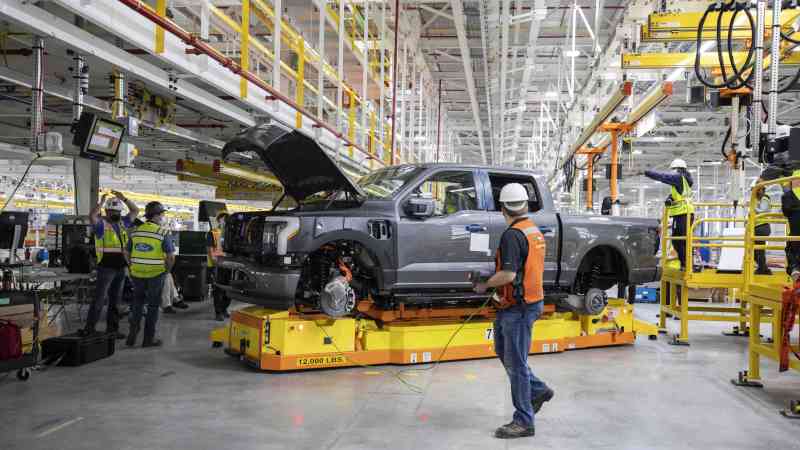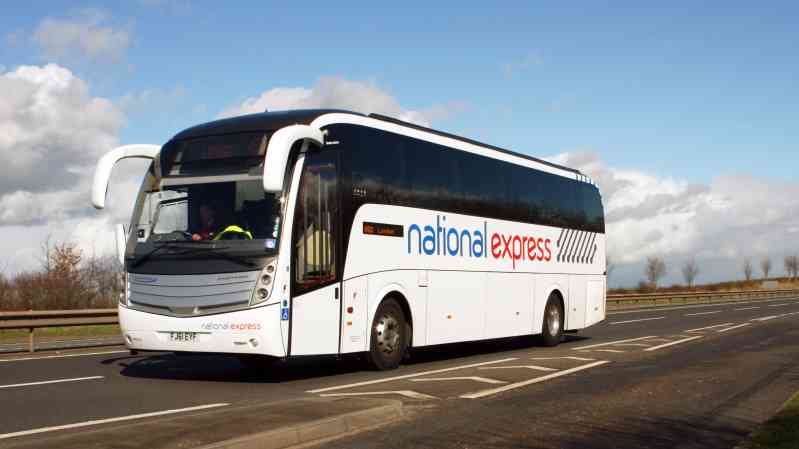Ford scraps plans for electric SUV at potential cost of $1.9bn
Ford Motor Company has scrapped plans for an electric sports utility vehicle at a potential cost of up to $1.9 billion as car-buyers fail to show enough enthusiasm for electric vehicles and increased competition forces manufacturers to reduce prices.
The American carmaker said on Wednesday that it would no longer manufacture its planned three-row of seats electric SUV and would instead make a hybrid model.
Ford said the scrapped model would not have been able to turn a profit in the first year after launch, citing EV buyers who are more cost-conscious than early adopters, while scores of new models are due to hit the market over the next 12 months, putting pressure on prices.
Slowing growth in demand for EVs and increased competition has caused carmakers including Ford, General Motors and others to delay or cancel new models. Consumers have shown caution around swapping their petrol-engine vehicles for EVs because of higher prices and unreliable charging infrastructure.
Ford expects its change in strategy will cost up to $1.9 billion, including a $400 million write-down of assets for the previously planned three-row SUVs, and additional costs of up to $1.5 billion.
Jim Farley, Ford’s chief executive, has said that one of the main solutions to slowing EV sales growth was bringing the production costs around those models down. That is a key goal for the future health of the company, which is expected to lose up to $5.5 billion on EVs this year alone.
John Lawler, Ford vice-chairman and chief financial officer, said: “We’re committed to creating long-term value by building a competitive and profitable business.
“With pricing and margin compression, we’ve made the decision to adjust our product and technology roadmap and industrial footprint to meet our goal of reaching positive earnings before interest and and tax within the first 12 months of launch for all new models.”
The company said it would reduce the percentage of its annual capital expenditure allocated towards purely electric vehicles from 40 per cent to 30 per cent.

Ford is planning to launch a new electric commercial van in 2026, as business customers show stronger appetite for EVs. “For them [commercial customers], vehicles, software and charging solutions are tools, and they want the best tools for the job and their bottom line,” Ford said.
However, the successor to Ford’s F-150 Lightning electric truck has been delayed to the second half of 2027 from an initially planned 2025 launch, as the company hopes to take advantage of lower-cost battery technology.
The Bernstein analyst Daniel Roeska said in a research note: “The criticism Ford will have to face is why its product plan was not more flexible from the beginning, why it has been slow to implement these changes, and why investors will need to wait for a comprehensive update until next year.”
Garrett Nelson, an analyst with CFRA Research, said: “This is just the latest announcement from a traditional automaker to moderate EV growth plans in favour of hybrids. It’s largely a response to consumer demand, as the US hybrid market is both larger and growing faster than the pure-battery EV market.”
Ford’s shares rose $0.17, or 1.6 per cent, to close at $10.85 in New York on Wednesday.




Post Comment